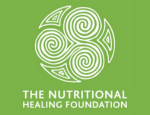

Epigenetics
Epigenetics is the study of how our behaviours and environment can cause changes that affect the way our genes work. Unlike genetic changes, epigenetic changes are reversible and do not alter the DNA sequence, but can modify how the body reads a DNA sequence. This means that factors such as diet, physical activity, stress levels and exposure to toxins can influence gene expression, effectively turning genes on or off.
This emerging field underscores a pivotal shift in our understanding of health: while we inherit a fixed set of genes, their expression is dynamic and responsive to our environment and behaviours. In other words, genetic predisposition is not destiny.
Gene Regulation, Inflammation, and Chronic Disease
Chronic, low-grade, inflammation is a common thread in many health conditions, including auto immune diseases, metabolic diseases and cardiovascular diseases. Epigenetic mechanisms play a crucial role in regulating inflammatory responses. For instance, certain lifestyle factors can lead to epigenetic modifications that either promote or supress inflammation;
Moreover, epigenetics provides insight into how inherited genetic predispositions can be influenced by environmental factors. While we cannot change our genetic code, we can modify the expression of our genes. This means that individuals with a family history of certain diseases may reduce their risk through positive lifestyle changes that affect gene expression.
Lifestyle Factors Influencing Epigenetic Changes;
Several modifiable lifestyle factors are known to exert epigenetic effects with relevance to inflammation, metabolic health, and hormone balance:
- Nutrition: Nutrient-rich foods, such as fruits, vegetables, and whole grains, contain bioactive compounds that can lead to beneficial epigenetic modifications. For example, compounds like sulforaphane in cruciferous vegetables have been shown to influence gene expression related to detoxification and inflammation.
- Physical Activity: Regular moderate-intensity exercise has been associated with epigenetic changes that enhance metabolic health and reduce inflammation. Physical activity can lead to modifications in DNA methylation patterns, influencing genes involved in energy metabolism and insulin sensitivity.
- Stress & Sleep: Chronic psychological stress and poor sleep hygiene contribute to epigenetic dysregulation of the hypothalamic-pituitary-adrenal (HPA) axis, which can perpetuate systemic inflammation and impair hormonal signalling. Restorative sleep and evidence-based stress reduction techniques (e.g., mindfulness-based interventions) can mitigate these effects and promote healthier gene expression profiles.
- Environmental Exposures: Toxins such as endocrine-disrupting chemicals, heavy metals, and pollutants have been associated with harmful epigenetic modifications. Minimising exposure through lifestyle and dietary choices is a key aspect of preventative care.
Taking Control of Your Health.
Epigenetics provides a scientific framework that bridges personalised nutrition with long-term health outcomes. Understanding the principles of epigenetics empowers individuals to take proactive steps in managing their health. By adopting healthy lifestyle habits, it’s possible to influence gene expression positively, potentially reducing the risk of chronic diseases and mitigating inherited vulnerabilities.
Epigenetics is the study of how our behaviours and environment can cause changes that affect the way our genes work. Unlike genetic changes, epigenetic changes are reversible and do not alter the DNA sequence, but can modify how the body reads a DNA sequence. This means that factors such as diet, physical activity, stress levels and exposure to toxins can influence gene expression, effectively turning genes on or off.
This emerging field underscores a pivotal shift in our understanding of health: while we inherit a fixed set of genes, their expression is dynamic and responsive to our environment and behaviours. In other words, genetic predisposition is not destiny.
Gene Regulation, Inflammation, and Chronic Disease
Chronic, low-grade, inflammation is a common thread in many health conditions, including auto immune diseases, metabolic diseases and cardiovascular diseases. Epigenetic mechanisms play a crucial role in regulating inflammatory responses. For instance, certain lifestyle factors can lead to epigenetic modifications that either promote or supress inflammation;
Moreover, epigenetics provides insight into how inherited genetic predispositions can be influenced by environmental factors. While we cannot change our genetic code, we can modify the expression of our genes. This means that individuals with a family history of certain diseases may reduce their risk through positive lifestyle changes that affect gene expression.
Lifestyle Factors Influencing Epigenetic Changes;
Several modifiable lifestyle factors are known to exert epigenetic effects with relevance to inflammation, metabolic health, and hormone balance:
- Nutrition: Nutrient-rich foods, such as fruits, vegetables, and whole grains, contain bioactive compounds that can lead to beneficial epigenetic modifications. For example, compounds like sulforaphane in cruciferous vegetables have been shown to influence gene expression related to detoxification and inflammation.
- Physical Activity: Regular moderate-intensity exercise has been associated with epigenetic changes that enhance metabolic health and reduce inflammation. Physical activity can lead to modifications in DNA methylation patterns, influencing genes involved in energy metabolism and insulin sensitivity.
- Stress & Sleep: Chronic psychological stress and poor sleep hygiene contribute to epigenetic dysregulation of the hypothalamic-pituitary-adrenal (HPA) axis, which can perpetuate systemic inflammation and impair hormonal signalling. Restorative sleep and evidence-based stress reduction techniques (e.g., mindfulness-based interventions) can mitigate these effects and promote healthier gene expression profiles.
- Environmental Exposures: Toxins such as endocrine-disrupting chemicals, heavy metals, and pollutants have been associated with harmful epigenetic modifications. Minimising exposure through lifestyle and dietary choices is a key aspect of preventative care.
Taking control of your health.
Epigenetics provides a scientific framework that bridges personalised nutrition with long-term health outcomes. Understanding the principles of epigenetics empowers individuals to take proactive steps in managing their health. By adopting healthy lifestyle habits, it’s possible to influence gene expression positively, potentially reducing the risk of chronic diseases and mitigating inherited vulnerabilities.
Follow me on Instagram
@halenaturopath










Federation of Nutritional Therapy Practitioners (FNTP)
Membership No. 104 823 567
I’D LOVE TO HEAR FROM YOU
T. 07356 265446
consulting@felicitywilde.com
FOLLOW ME
© 2025 Felicity Wilde Nutritional Therapy.